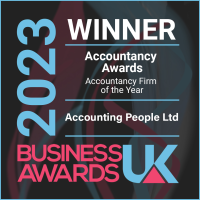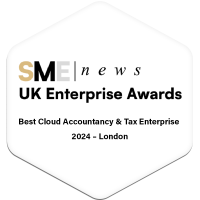When you are self-employed, you’ll likely incur various costs while running your business. Some of these expenses may be allowable for tax purposes, meaning they can be deducted from your income when calculating your taxable profits. In simple terms, allowable business expenses reduce the taxable profits and national insurance (Class 4 NIC).
Capital vs Revenue Expenses
Business expenses are generally grouped into two main categories: capital expenses and revenue expenses.
- Capital expenses are usually one-off or larger costs that involve buying an asset with a longer life, such as a laptop, office furniture and shelving and business vehicle etc. These items typically provide ongoing value to your business.
- Revenue expenses, on the other hand, cover everyday running costs. These include items that are used up quickly or need regular replacement, such as stationery, stock, or printer ink.
Allowable Business Expenses
For an expense to be considered allowable, it must be incurred wholly and exclusively for the purpose of your business. This means the expense must directly relate to running your business or helping you to generate more income.
Some expenses may have both personal and business elements – for instance, a phone bill or a utility bill when working from home. In these cases, only the business portion can be claimed.
Not all costs will be allowable. Items that are purely personal or have duality of purpose such as: glasses, clothes, shoes unless those used just for the business purpose like personal protective equipment and those with company logos prominently displayed, or that don’t meet the required criteria, must be excluded or adjusted in your accounts.
Keeping Records and Evidence
HMRC may ask you to provide the supporting records:
- You genuinely incurred the expense
- It was entirely for business purposes
It’s important to keep accurate records and retain receipts, invoices, or bank statements as supporting evidence. Mistakes in claiming can lead to penalties, so careful record-keeping is essential.
Business Expenses for Disabled Self-Employed Individuals
There is no special tax deduction for disabled person. However, if you are self-employed and need to make reasonable adjustments to your workplace, such as adapted furniture, special software, or accessible equipment, those costs can be claimed as long as they are purely for business use.
If you receive a grant to help cover these expenses, such as one from the government’s Access to Work scheme, you must include the grant as part of your business income when completing your accounts. At the same time, the related expenses can still be claimed as allowable.
Reporting Expenses on Your Tax Return
When completing your tax return, whether you list individual expense categories or just the total figure depends largely on your turnover.
- If your annual turnover is under £90,000 and your circumstances are straightforward, you can usually enter a single total figure for your allowable business expenses.
- If your turnover is above £90,000, or if other specific conditions apply, you’ll need to provide a breakdown of your expenses within the categories listed on the return.
Even if you are only entering a total figure, you should still keep detailed records of your individual expenses in case HMRC requests them.
Common Allowable Expenses
Cost of Goods for Resale
If you buy goods to resell or materials to make your products, those costs are typically allowable. If you’re using the accruals basis, you must account for any stock remaining at year-end by carrying out a stocktake. Stock is valued at the lower of what you paid for it or what you could sell it for.
If you’re using the cash basis, you don’t need to calculate closing stock, and your purchases are recorded when you pay for them.
When a business owner takes stock for personal use under the accruals basis, the principles from Sharkey v Wernher apply. This means the stock must be brought into account at its market value at the time of withdrawal, though in practice, establishing that value can sometimes be challenging.
Wages, Salaries and Staff Costs
You can include wages for employees, including family members, provided they genuinely work for your business and their pay is reasonable for the role. Payments must be properly recorded and actually made, ideally through your business bank account.
Your own drawings, however, are not allowable as a business expense. If you’re self-employed, you are not treated as an employee of your business.
Travel and Transport Costs
You can claim travel costs when you are travelling for business reasons. This includes expenses like:
- Public transport fares
- Hotel stays
- Meals when travelling overnight
- Taxis for business purposes
Travel between your home and your usual workplace is not allowable, this is considered regular commuting. However, if your home is your base and you travel to different sites, the journeys may qualify as business travel.
Expenses for parking, tolls, congestion charges, and clean air zone fees during business travel can be claimed in full. Parking fines, however, are not allowable.
Vehicle Running Costs
If you use a car or van for your business, you can claim the business portion of the running costs. These include:
- Fuel
- Insurance
- Maintenance and repairs
- Road tax
- Breakdown cover
- Leasing charges
You can claim mileage allowance based on the miles travel for business endeavors as per HMRC flat rates.
Simplified Expenses
Simplified expenses are flat rate allowances that can be used instead of calculating the exact cost or business proportion. They are available for:
- Business mileage
- Working from home
- Living at your business premises
These are designed to make record-keeping easier, though the actual cost method may provide a higher deduction in some cases.
Working from Home
If you work from home for at least 25 hours per month, you can claim a flat rate amount for household costs. For 2024/25 and 2025/26, the rates are:
- 25 to 50 hours/month: £10
- 51 to 100 hours/month: £18
- 101 or more hours/month: £26
This flat rate covers utilities, but you can still claim a business proportion of other costs such as internet or mortgage interest. While simpler, the flat rate may result in a lower claim than using actual costs.
Final Thoughts
Understanding what counts as an allowable business expense is key to managing your finances effectively and reducing your tax bill when you’re self-employed. With the introduction of Making Tax Digital (MTD) for Self Assessment, accurate record-keeping and digital reporting are becoming even more important. By keeping detailed records, choosing the right method for calculating expenses, and ensuring every cost you claim is genuinely for business use, you can stay compliant with HMRC while maximising your tax efficiency. If you’re unsure about any specific expenses or need tailored advice, speaking to a qualified accountant can help you make the most of your entitlements, stay prepared for MTD, and avoid costly mistakes.



